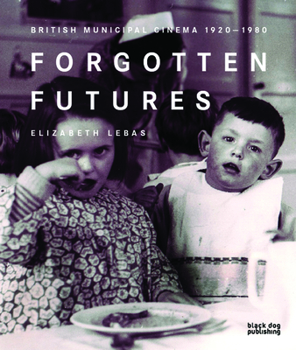Forgotten Futures: British Municipal Cinema 1920-1980
From the 1920s until a decade after the Second World War, British municipalities not only controlled commercial screenings and cinemas, but also almost all projected and rental non-commercial films. Forgotten Futures examines municipal cinema as a filmic representation of urban and social reform in twentieth century Britain by looking at the relationship to documentary and educational cinema, the influence of the nineteenth century documentary photography and traditional forms of popular culture. It is the first book on municipal cinema in Britain and examines new perspectives on documentary photography, film and art.
The book explains why municipal films were more than simple propaganda and what their influence is in the making of the social democratic model of modern British everyday urban life. There's a closer look into the activities of the Glasgow Corporation and the Bermondsey Borough Council: two socialist municipalities who promoted their political identities through their making and sponsorship of films over several decades. Although the Glasgow Corporation was the first local authority in Britain to commission a film of its activities, Bermondsey Borough Council was the first to make its own films. Between 1922 and 1956 Bermondsey Borough Council produced 39 films as part of a campaign of public health and personal hygiene and as an advertisement for its achievements and services. Subjects varied from the care of teeth, the cleanliness of the body, the physical and moral risks of hop picking to childcare, public gardens and the management of tuberculosis. The films were shown for free in town halls, clinics, schools, youth clubs, working-men's clubs, political associations and trade unions. The professionally made imageries of the Glasgow Corporation represent the city's evolution from its status as 'Second City of the Empire' to a post-war form of Scottish identity. The book finishes with a look at imagery of social reform that begins in the late nineteenth century, sources of authority present in the films' images of everyday life and ordinary people in relation to their institutional legitimacy. It argues the necessity of understanding these films on their own, within their own historical and political contexts as documents of their time.Format:Paperback
Language:English
ISBN:1906155941
ISBN13:9781906155940
Release Date:July 2011
Publisher:Black Dog Press
Length:189 Pages
Weight:2.12 lbs.
Dimensions:1.5" x 8.5" x 10.0"
Customer Reviews
0 rating





